How to Rent an Apartment in Dubai: A Complete 2026 Guide for Expats & Locals
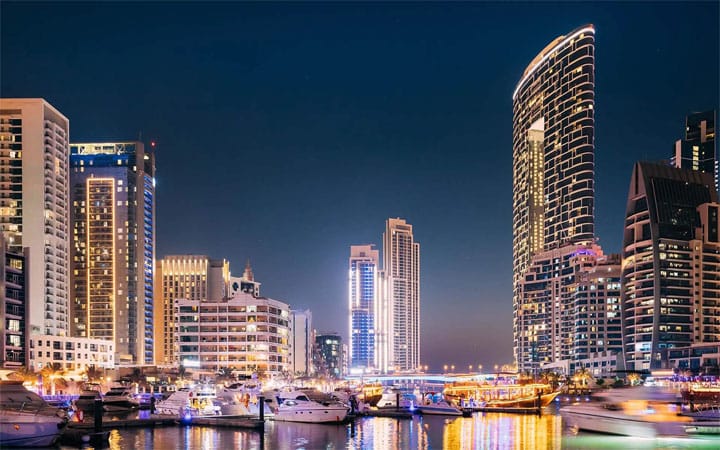
Renting an apartment in Dubai is a thrilling, but possibly overwhelming experience, especially if you’ve just moved to the city. With a thriving property market, world-class infrastructure and diverse community, Dubai has rental opportunities available for every budget and lifestyle. However, knowing how the process works, the relevant legalities and the market condition will be ideal for making your decision informed.
So, whether you are an expat moving for work, a tourist looking for a long term rental or a local changing addresses, this guide is to help you understand the ins and outs of how to rent an apartment in Dubai with confidence.
Advantages of Renting in Dubai
When it comes to renting an apartment in Dubai, you have a variety of advantages that meet the different needs of residents, whether you are an expat moving for the first time or a long-time resident looking for a lifestyle change. The rental market in the city is distinguished by convenience, flexibility and a range of living options to fit every budget and preference.

1. Flexibility and Freedom
One of the benefits of renting in Dubai is flexibility. Unlike being a homeowner, being a renter allows you to change your living arrangements more easily with changing personal or professional circumstances. This is beneficial for:
- Frequent movers who relocate to new areas in the city or change jobs frequently
- Newcomers who want to locate to different areas before committing to long-term living
- Short-term residents or contract workers who need temporary housing for several months
Renting allows you to not be tied with long-term commitment and a large financial commitment that comes with purchasing, making this a great solution for active lifestyles.
2. Range of Housing Types
One of the most unique processes and experiences of renting a house in Dubai is the extremely variety of real estate market in the world. As a renter, the following idiosyncratic choices are available, for example:
- Large, high-rise luxury apartments in Downtown Dubai or Business Bay
- High-rise beach front apartments, as in Jumeirah or Palm Jumeirah
- Villas in suburban communities, such as Arabian Ranches or Mirdif
- Affordable flats in Deira, Al Nahda or International City
We feel there is enough choice that renters can find something that meets their needs, even if they want a studio apartment right by the metro or a two bedroom for their growing family.
3. Limited Maintenance Responsibilities
In the overwhelming majority of cases, landlords in Dubai are responsible for maintenance and upkeep of the property, especially if there is a major issue. This includes:
- Structural repairs
- AC servicing
- Fixing plumbing and electrical problems
- Pest control (depending on tenancy contract)
From a tenants point of view, this is very convenient, as the majority of expenses will be paid by the landlord and putting time and effort into problem solving is significantly less time intensive. Some of the newer buildings even have 24/7 maintenance on site as part of their amenities.
4. Flexible Lease Duration
Unlike in many global cities where yearly leases are the norm, Dubai offers various rental options:
- Short-term leases for tourists, digital nomads, or exploratory living
- Monthly/quarterly payment plans in specific buildings
- Yearly contracts with options of renewal upgrades
This means renters can change their housing arrangements based on their needs—be it one-time stay, project based short-term stay, or permanent—that level of flexibility is ideal for any housing situation.
5. No Down Payment or Long-term Investment
Perhaps the most significant financial upside is that you do not have to deal with the most common barrier in owning property—its required down payment, usually in excess of 20% of the value of the property. Renting has removed the barriers of down payments and mortgage payments making rental vacancies more available to people. Not to mention the aspects of property ownership such as:
- Mortgage approvals
- Property taxes
- Market fluctuations and property value concerns
As long as you have a valid residence visa, Emirates ID and your first rental payment, you can navigate rental with relative convenience and swiftness.
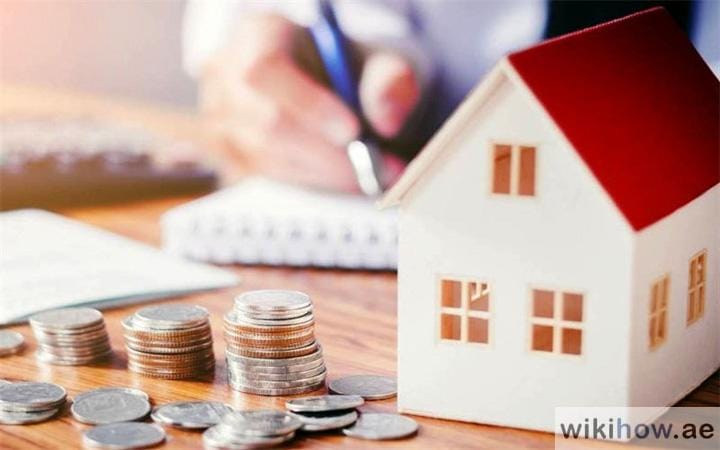
Understanding Your Budget & Costs
The cost of renting varies based on location, apartment size and building amenities. Here’s a rough breakdown:
| Area | 1-Bedroom (AED/month) | 2-Bedroom (AED/month) |
| Downtown Dubai | 8,000 – 13,000 | 12,000 – 18,000 |
| Dubai Marina | 7,000 – 11,000 | 10,000 – 16,000 |
| Deira | 4,000 – 6,000 | 6,000 – 9,000 |
| Jumeirah Village Circle | 5,000 – 8,000 | 7,000 – 11,000 |
| International City | 3,000 – 5,000 | 5,000 – 7,000 |
Hidden Costs to Be Aware Of
In addition to the monthly rental costs, you will typically encounter:
- Security deposit: Usually 5% of annual rent
- Agency commission: Typically 5% of annual rent
- Ejari registration fee: AED 220
- DEWA set up: AED 2,000 (refundable deposit) + connection fees
- Chiller fees: Commonly in buildings located in Marina and Downtown
- Maintenance fees: In some cases can be billed to tenants
Steps to Renting an Apartment in Dubai
Finding a rental in Dubai is very simple process once you follow 5 simple steps, whether you’re new to the emirate or have lived here for a while.
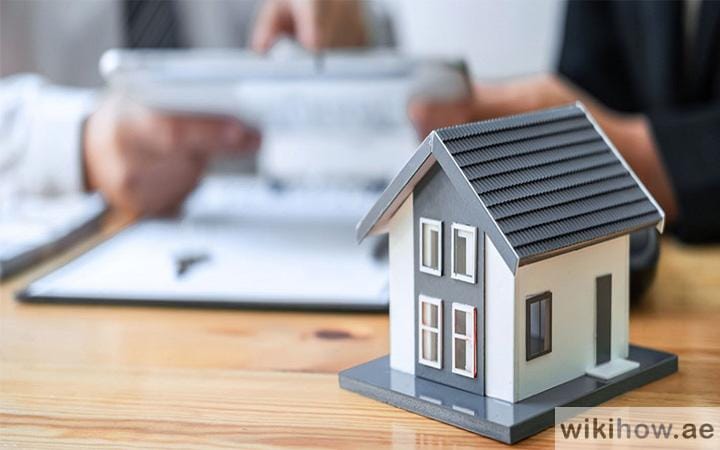
Step 1: Outline Your Requirements
First, determine the number of bedrooms, furnished or unfurnished units and how close it should be to your place of work, school or public transport. It is also important to ask about parking, amenities, and any pet policies.
Step 2: Search and Get a Licensed Agent
Once you’re determined your requirements, search trusted sites such as Bayut, Property Finder, or Dubizzle for listings. If you require help, hire a RERA licensed agent to walk you through process safely and professionally.
Step 3: View and Assess Properties
Schedule viewings and view each unit. Test water pressure, air conditioning, damage and ask about utility costs. Review condition of building and neighborhood quality.
Step 4: Negotiate and Sign Offer Letter
Negotiate the rent or simply request perks such as free maintenance or additional parking. After you agree on everything you will sign an offer letter that will summarize the rent, any agreed duration of the lease, payment terms and any special conditions.
Step 5: Sign Contract and Register with Ejari
Read, understand and sign the tenancy contract, making sure the rent amount is clearly stated along with who is responsible for maintenance on the property, the terms of the lease as to how long you will be renting the property, and exit clauses if any. After, you will have to register it with Ejari, which is required for any set ups like
Legal Requirements and Documentations
Before renting an apartment in Dubai, you will need some legal documents to finalize the tenancy contract and your registration with government systems. These documents confirm your identity, residency status and ability to pay and hold a tenancy, which allows for a safe transaction between tenant and landlord.
You will need:
- Valid passport
- UAE residence visa
- Emirates ID
- Recent salary certificate or bank statements
Cheque book (you must also have post-dated rent cheques; it is typical for a rental agreement to have post-dated cheques)
Best Areas to Rent an Apartment in Dubai
Picking the right neighborhood is one of the largest steps when renting an apartment in Dubai. The city has various areas that are completely different from each other in terms of lifestyle, amenities, and price point. Whether you’re looking for a quiet family neighborhood, an active city vibe or a budget option, there’s something for everyone in Dubai. In fact, many of the best places to live in UAE are located right here in Dubai, offering world-class infrastructure, vibrant communities, and unparalleled convenience for residents of all lifestyles.
Mirdif
Mirdif is a family-friendly suburban area close to Dubai International Airport that strikes a nice balance between a convenient and peaceful environment for families. With tree-lined streets and low-rise residential stylings, the area has a nice selection of villas and townhouses with plenty of space. Parents are attracted to Mirdif not only for the parks and green space, but for the amount of outdoor area there is to play, while providing an ideal environment for children. The area also has a number of good schools and nurseries that help develop a strong sense of community. Traffic is also less congested in Mirdif than in central Dubai, so if you want a quieter and friendlier environment for your family while still being connected to the rest of Dubai, it’s a good choice!
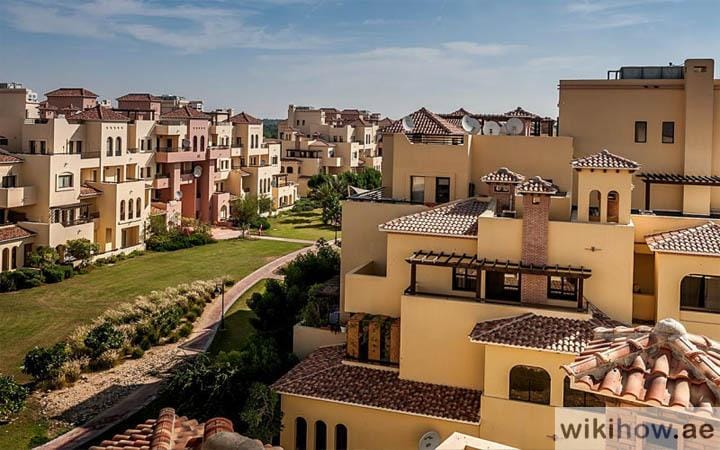
Arabian Ranches
Arabian Ranches is a serene, upscale gated community in Dubai, renowned for its spacious villas, lush landscapes, and strong family-friendly atmosphere. Blending Spanish and Arabic architectural styles, the neighborhood offers excellent amenities including swimming pools, tennis courts, playgrounds and even a golf course. It also features top-quality schools, healthcare centers and shopping outlets, making it ideal for families seeking a peaceful, suburban lifestyle with all essential services close at hand. Arabian Ranches stands out for its community spirit, safety and tranquil environment—perfect for long-term living away from the city’s hustle.
Deira
Deira is one of the longest established and culturally rich areas of Dubai, offering a delightful convergence of traditional communities and urban convenience. Deira often provides affordable low-to-midrange rent prices which provide for long-term are cheap real estate which appeal to tenants looking for value in the meanst of the city. Deira is also very well connected with easy access to public transport, including metro stations and bus station routes running through the entire city. Dubai’s oldest souks, the iconic creek, and the vast majority of big business hubs are also close by and there are plenty of mixed use buildings with housing upstairs and shops and services below. While some of the properties could be considered dated, the cosmopolitan atmosphere, easy access and affordability will keep Deira a popular place to live for many.
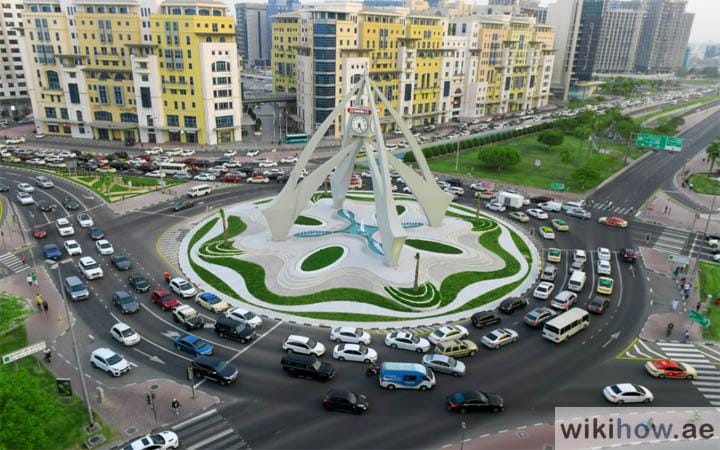
Jumeirah
Jumeirah ranks among the most noted coastal neighborhoods in Dubai and is famous for luxury villas, large apartments and a beachside lifestyle. This high-end neighborhood attracts families who want to be close to the beach, picturesque waterfront parks and schools and hospitals of the highest standard. The design of housing in Jumeirah is usually an interesting mix of modern sophistication and traditional Arabian style, which makes Jumeirah a distinctive and sophisticated residential experience. Although prices are generally high, this is due to an appealing location, low density of housing and quality of facilities and Jumeirah continues to be a neighborhood of choice for those who value a lifestyle and exclusive neighborhood over a budget.
Conclusion
Renting an apartment in Dubai can be a fun and rewarding experience with the right information and preparation. Finding that perfect neighborhood, setting the right budget, understanding the legal requirements and registering your tenancy with Ejari, is all important in having a smooth journey when renting an apartment in Dubai. The Dubai real estate market has everything; whether you are after high-end luxury living by the beach, or affordable housing in any suburb that has good connections, you can find it. By following the right steps, working with licensed agents and keeping informed, you will be well on your way to the kind of home that works for you. Dubai still offers one of the best chances of world-class amenities, an exceptional quality of living and strict rental controls, making it a sought-after destination for residents of all walks of life.
For those who are interested in diving deeper, following property laws, housing trends and expat tips or for those with the advice please be sure to check out WikiHow. They are a well knowledgeable, trustworthy resource with guides and recent news about living in the UAE. You will be able to find information ranging from legal requirements to life hacks and more, to assist you in making your Dubai experience a fun and enjoyable one.
FAQs
1. Can foreigners rent apartments in Dubai?
Yes, both residents and non-residents can rent apartments in Dubai. Long-term rentals require a UAE residence visa and Emirates ID, while tourists can opt for short-term furnished rentals.
2. What is Ejari and why is it important?
Ejari is a government registration system for rental contracts. It legalizes your tenancy agreement, protects your rights, and is required to activate services like DEWA.
3. How is rent typically paid in Dubai?
Rent is usually paid in 1 to 4 post-dated cheques, depending on the agreement with the landlord. Some properties also offer monthly payment options, especially for furnished or serviced apartments.






I just like the valuable information you supply in your articles. I will bookmark your blog and check again right here regularly. I am slightly certain I will be told plenty of new stuff right here! Best of luck for the following!
Thank you so much! We truly appreciate your support and look forward to sharing more helpful content with you each time you visit.
great post, very informative. I ponder why the opposite experts of this sector do not realize this. You should proceed your writing. I’m confident, you have a huge readers’ base already!
Thank you so much for your kind words! Your support truly motivates us to keep writing and sharing more valuable content.
Hello there, I found your website via Google while searching for a related topic, your website came up, it looks good. I have bookmarked it in my google bookmarks.
Thank you so much for visiting and bookmarking the site!
I’m glad you found it helpful and easy to navigate. We’re always updating with new, informative content hope to see you back soon!